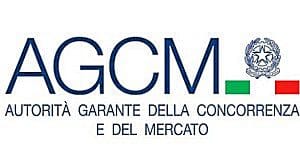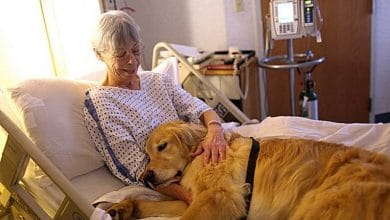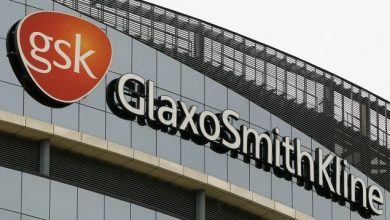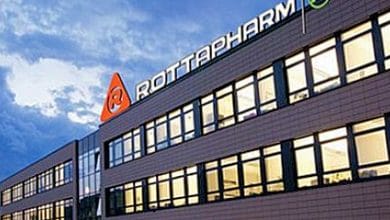
The Competition and Market Authority will verify the hypothesis of abuse of the company's dominant position in the market for anticancer drugs, included in range A and therefore paid by the National Health Service. There are four medicines in question: Alkeran, Leukeran, Purinethol and Tioguanine.
Posted by Editorial board November 28, 2014 – SocialGamesPro
 The cost of some anticancer drugs used to treat leukemia, lymphoma and myeloma in particular has increased by 250 to 1,500 percent. This is the bad news that comes from the Antitrust which has opened an investigation into Aspen Pharma Trading Limited (hereinafter referred to as Aspen), a company of the South African pharmaceutical giant, leader in the production of generic drugs. The Competition and Market Authority will verify the hypothesis of abuse of the company's dominant position in the market for anticancer drugs, included in range A and therefore paid by the National Health Service. There are four medicines in question: Alkeran, Leukeran, Purinethol and Tioguanine which, as the Antitrust writes, cannot be replaced with another drug because "there are no other products on the market based on the same active ingredient".
The cost of some anticancer drugs used to treat leukemia, lymphoma and myeloma in particular has increased by 250 to 1,500 percent. This is the bad news that comes from the Antitrust which has opened an investigation into Aspen Pharma Trading Limited (hereinafter referred to as Aspen), a company of the South African pharmaceutical giant, leader in the production of generic drugs. The Competition and Market Authority will verify the hypothesis of abuse of the company's dominant position in the market for anticancer drugs, included in range A and therefore paid by the National Health Service. There are four medicines in question: Alkeran, Leukeran, Purinethol and Tioguanine which, as the Antitrust writes, cannot be replaced with another drug because "there are no other products on the market based on the same active ingredient".
Despite this, their cost has increased significantly earlier this year. For example, the Alkeran which previously cost the public 5.80, will now cost 95. The change in costs was decided after a series of meetings and exchanges of letters between the company and Aifa, the Italian agency del Farmaco, which approved the percentage increases ranging from 250 to 1500 per cent on 17 March. However, the negotiation on medicines began months earlier, in March 2013, when Aspen submitted the "requests for changes to the reimbursement regime for medicines" to Aifa. Basically, he asked to move the four drugs from range A, which includes essential medicines paid by the National Health Service, to range C, i.e. among those totally paid by the patient and subject to prescription. Furthermore, in a letter dated 9 April 2013 sent to AIFA, the company highlights "the need to align prices in the various countries of the European Union to guarantee price sustainability and supply adequacy in the respective markets".
 In the end, Aifa decides to negotiate the price, leaving the patient the option of continuing to charge the health service for the drug. On 14 October 2013, however, Aspen raised its tone and sent AIFA a letter threatening the "withdrawal of the drugs from the market". "In the aforementioned communication - writes the Antitrust - we read that if Aifa had not proceeded with the publication in the Official Gazette of the reclassification decisions in range C or, possibly, of redetermination of the price in the refundable range, within the term dictated by Aspen ( November 2013) 'the writer will promptly proceed in accordance with the law to communicate the interruption of the marketing of the products in Italy, starting from January 2014. In the aforementioned eventuality, the writer will make every effort to make the medicines available for Italian patients through the markets of other countries of the European Union at the price in force there". Five months go by and Aifa gives in, agreeing on a price increase that even reaches 1,500 percent. So the Leukeran which cost 7.5 euros goes to 94 euros; Purinethol from 16 euros to 95 euros and Tioguanine from 53 euros to 219. An increase in costs that will weigh on the National Health Service. On this situation, however, the Competition Guarantor has opened an investigation into Aspen's “abusive behaviour” which “would have taken the form of a strategy aimed at obtaining a very significant increase in the sale price of the drugs (..). Faced with the awareness of the absence of replaceable drugs, Aspen's strategy appears to be based on the credible threat of withdrawing its proprietary medicines from the market in the event of no agreement”.
In the end, Aifa decides to negotiate the price, leaving the patient the option of continuing to charge the health service for the drug. On 14 October 2013, however, Aspen raised its tone and sent AIFA a letter threatening the "withdrawal of the drugs from the market". "In the aforementioned communication - writes the Antitrust - we read that if Aifa had not proceeded with the publication in the Official Gazette of the reclassification decisions in range C or, possibly, of redetermination of the price in the refundable range, within the term dictated by Aspen ( November 2013) 'the writer will promptly proceed in accordance with the law to communicate the interruption of the marketing of the products in Italy, starting from January 2014. In the aforementioned eventuality, the writer will make every effort to make the medicines available for Italian patients through the markets of other countries of the European Union at the price in force there". Five months go by and Aifa gives in, agreeing on a price increase that even reaches 1,500 percent. So the Leukeran which cost 7.5 euros goes to 94 euros; Purinethol from 16 euros to 95 euros and Tioguanine from 53 euros to 219. An increase in costs that will weigh on the National Health Service. On this situation, however, the Competition Guarantor has opened an investigation into Aspen's “abusive behaviour” which “would have taken the form of a strategy aimed at obtaining a very significant increase in the sale price of the drugs (..). Faced with the awareness of the absence of replaceable drugs, Aspen's strategy appears to be based on the credible threat of withdrawing its proprietary medicines from the market in the event of no agreement”.





